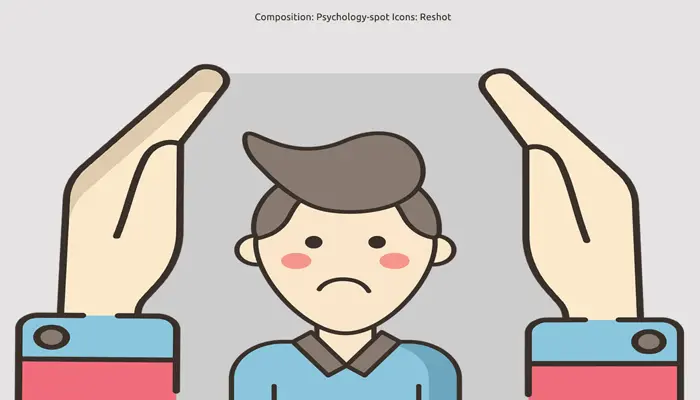
Everyone, whether we like it or not, suffers cognitive biases. These are generally involuntary psychological phenomena that distort the way we process information and our thinking, so that they lead us to make illogical interpretations and inaccurate judgments. The result? We reach wrong conclusions and make bad decisions. One of the cognitive biases that most impacts our decisions is the framing effect.
How do we avoid or embrace the risk according to the frame?
It was 1981 when two psychologists, Amos Tversky and Daniel Kahneman studied how the way information is presented influences our decisions. In one of their experiments, they asked participants to choose between two options for 600 people affected by a deadly disease. The alternatives were presented with a positive frame (how many people would live), or with a negative frame (how many people would die).
For example, treatment A was presented positively indicating that “it would save 200 lives” and negatively indicating that “400 people will die.” Treatment B was presented positively indicating that “there was a 33% chance of saving 600 people and a 66% chance of not being able to save anyone” or negatively indicating that “there was a probability of 33% that no person would die and a 66% chance of the 600 people dying.”
72% of people chose treatment A when it was presented under a positive frame (it would save 200 lives), but only 22% chose it when it was presented with a negative frame (400 people would die).
This and other similar experiments that were carried out later showed that many of our decisions are deeply skewed by the way in which the information is presented to us. We have a tendency to avoid risk when we are presented with a positive frame, but we are more likely to bet on risk when we face a negative frame.
In fact, another study conducted at the Northwest University found that more people support an economic policy that emphasizes the employment rate than that same policy that highlights unemployment rates. That means that the framing effect not only influences the important decisions we make in our lives, but also makes us more manipulable on a social level, leaning more in one direction than in another.
What is the framing effect?
When we face a problem, in an ideal situation, our decision should not be affected by the way it is described, but only by the variables intrinsic to the situation. If we make judgments based on irrelevant information, we will be more likely to make mistakes and violate logic.
The framing effect is a cognitive bias that leads us to decide between different options according to the way in which we are presented with its positive or negative consequences. As a result, we do not analyze the situation objectively, but we give more weight to some factors according to the way in which they were exposed to us.
The older we get, the more biased we are
Although we usually associate old age with wisdom and, therefore, with better decision making, science shows that it is not always the case. A study conducted at the University of West Virginia revealed that the framing effect deepens as we move forward in life.
This cognitive bias is more common in older adults than in younger adults or adolescents because as we age we adopt less demanding cognitive strategies when making decisions and tend to rely more on easily accessible information, regardless of whether is relevant or not for the decision we must make.
In addition, as the years go by we are more influenced by emotional and moral frames, which leads us to give more weight to these factors than to logic, so that positive or negative frames play a more important role in those decisions. That tendency to decide more quickly, relying on small clues and the thought patterns we have developed, can make us make decisions by letting ourselves be carried away by inconsequential factors and leaving us more vulnerable to manipulation.
How to overcome the framing effect to make more rational decisions?
• Reformulate the problem. “The formulation of a problem is usually more important than its solution,” Einstein said and was not misguided. To overcome the bias that represents the framing effect, sometimes we just need to reformulate the situation. It is convenient to see it from all the points of view, taking into account both the negative and the positive side. That way we can make a more rational decision.
• Assume a psychological distance. Becoming a kind of external observer will allow you to assume a more impartial stance. By putting emotions aside you can better assess the situation from the cognitive point of view, which will allow you to analyze its pros and cons. Interestingly, a study conducted at the University of Chicago found that thinking in a foreign language eliminates the framing effect, probably because it allows us to assume an emotional and cognitive distance from the situation.
• Activate thinking. The framing effect is due, in large part, to mental laziness or cognitive greed. In most cases we do not want to work and invest time and effort in analyzing all the factors, so we prefer to make decisions faster. It is not always negative, in some cases it can make us more effective decisions and obtain more results with less effort, but it is not always the case. When we have to make important decisions, we need to deactivate this automatic thinking mechanism and analyze conscientiously the situation. That means asking ourselves questions, seeking more information and taking more time to reflect on our response.
Sources:
Thomas, A. K. & Millar, P. R. (2012) Reducing the Framing Effect in Older and Younger Adults by Encouraging Analytic Processing. The Journals of Gerontology: Series B; 67B(2): 139–149.
Keysar, B. et. Al. (2012) The foreign-language effect: thinking in a foreign tongue reduces decision biases. Psychological Science; 23(6): 661-668.
Strough, J., Karns, T. E., & Schlosnagle, L. (2011) Decision-making heuristics and biases across the life span. Annals of the New York Academy of Sciences; 1235: 57–74.
Watanabe, S. Shibutani, H. (2010) Aging and decision making: Differences in susceptibility to the risky‐choice framing effect between older and younger adults in Japan. Japanese Psychological Research; 52(3): 163-174.
Druckman, J. N. (2001) Using Credible Advice to Overcome Framing Effects. The Journal of Law, Economics, and Organization; 17(1): 62–82.
Tversky, A. & Kahneman, D. (1981) The framing of decisions and the psychology of choice. Science; 211(4481): 453-458.



